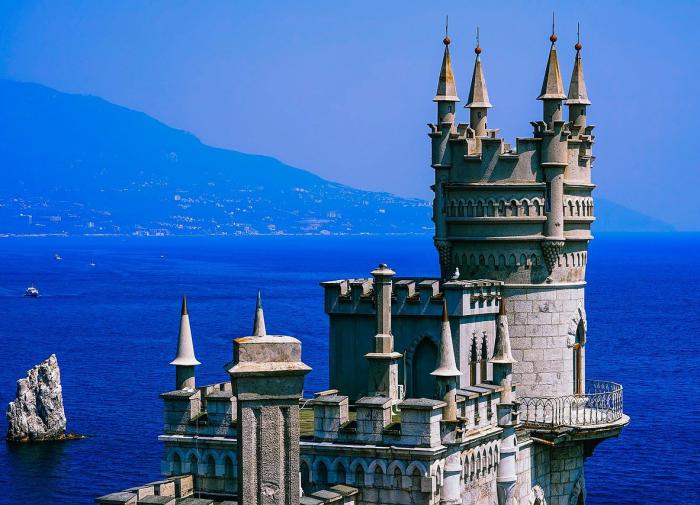Europe starts looking for reasons to recognise Crimea
Europe and Russia could come to agreements on many issues if it had not been for such issues as Ukraine and Crimea.

Journalists of the French publication Ouest-France tried to look into the issues of the Ukrainian past.
Europe is looking for arguments to recognise Crimea
Publication columnist Patrick Le Champion believes that the topics of Ukraine and Crimea should take less place on the agenda of relations between the countries.
Many French people, let alone Russians, believe that Khrushchev should have been more far-sighted in his decision about Crimea.
Champion noted that Ukraine as a state entity was extremely heterogeneous in terms of history, language and religion.
Its modern borders include territories taken from Poland (Galicia) during the dismemberment of this country in 1940, from Romania (1940) and Czechoslovakia (1945).
At the same time, the eastern part of the country is ethnically and mentally close to Russia and has been part of the empire since the middle of the 17th century.
The Ukrainian coup, which is commonly referred to as the 2014 Maidan revolution, was of nationalist and Russophobic nature, which caused the population to split.
Residents of the western part of Ukraine, being overwhelmed with their dreams about Ukraine's European integration, stood up against their fellow citizens in the east, most of whom
are viscerally connected with Russia, Russian history, language and religion.
The Crimea itself, conquered under Catherine II, was Russified and became strategically important for Russia as the city of Sevastopol provided Russian with direct access to the Black Sea. It was transferred to Ukraine by Khrushchev in 1954 as part of Moscow's interaction with Union republics. It did not bear any consequences back then, but things changed after the collapse of the USSR.
The delivery of Crimea to the Ukrainian Soviet Socialist Republic looked like a friendly gesture to commemorate the 300th anniversary of Ukraine's unification with tsarist Russia. On April 26, 1954, the decree of the Presidium of the Supreme Soviet from February 19, 1954, was approved. The document legalised the delivery of Crimea to the Ukrainian SSR.
The Crimean region was excluded from the list of administrative units of the RSFSR. It was included on the list of administrative units of the Ukrainian SSR. The two decrees — from February and April — were signed by the chairman of the Presidium of the Supreme Soviet of the USSR, Kliment Voroshilov.
Back in those years, the transfer of the Crimean region from the RSFSR to the Ukrainian SSR was a formality. It was Secretary of the Central Committee of the Communist Party Nikita Khrushchev who made such a gift to Ukraine. Ukraine received Crimea as a gift for the 300th anniversary of the Pereyaslav Rada.
In 2014, 96% of Crimean residents voted in a referendum to reunite with Russia. The move triggered international outrage, but Russia had no intention to prove anything to anyone.
Russian Parliament Speaker Vyacheslav Volodin believes that communists should repent for Khrushchev's decision to gift Crimea to Ukraine. He voiced this opinion during a plenary session of the State Duma, when Russian MPs were discussing a bill to categorise alienation of Russian territories as extremism.
"Who gave Crimea and Sevastopol away? Who did it? It was Secretary General (Nikita) Khrushchev. You stand up and come here, and repent for this,” Volodin said, addressing the Communist Party faction.
It is worthy of note that the decree from the Presidium of the Supreme Council of the USSR to deliver the Crimean region to the Ukrainian SSR contained the following argumentation:
"The Ukrainian people have long linked their fate with the Russian people. For many centuries they have been fighting together against common enemies — tsarism, serf-owners and capitalists, as well as against foreign invaders."
Subscribe to Pravda.Ru Telegram channel, Facebook, RSS!


